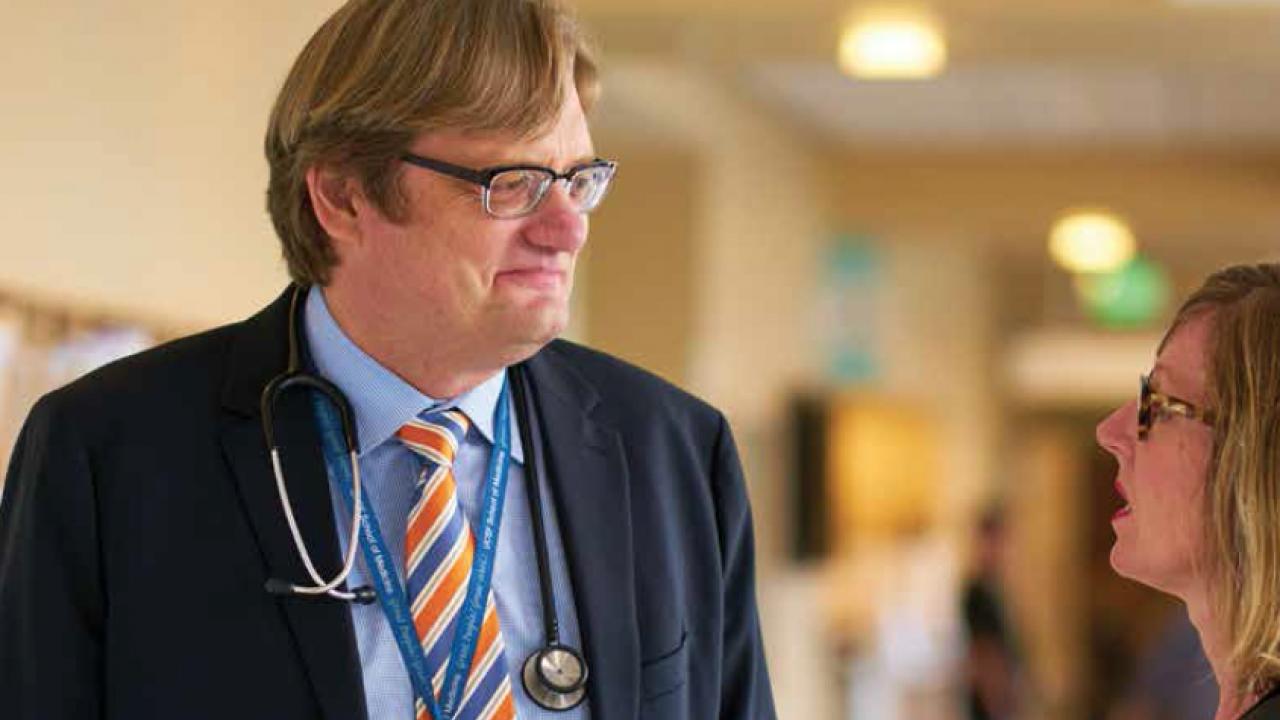
Dr. Michael Korn heads the Molecular Oncology Initiative (MOI) at the Helen Diller Family Comprehensive Cancer Center.
Last year, UCSF launched the Molecular Oncology Initiative (MOI) to integrate molecular information found in most cancer types with the ever increasing number of therapeutics being developed in translational research and clinical practice.
The UCSF Molecular Tumor Board (MTB), a group of experts that reviews molecular findings, was formed to interpret findings from the UCSF 500 gene panel assay, a pioneering sequencing test developed at UCSF to find mutations in a patient’s cancer that particular medicines can attack.
"These findings benefitted not only the affected patients but also their entire families. This shows we are on a very promising path that will greatly influence how we diagnose and treat cancer here."
“Right now, there are only a few genes where … we’ve found a predictable change in the gene and can recommend treatment without hesitation,” explains Michael Korn, MD, who’s also chair of the MTB. “That’s why the tumor board is there – to tackle this big gray zone in gene behavior and help physicians make correct diagnoses for their patients and deliver appropriate treatment.
“The MTB reviews findings obtained by the UCSF 500 gene panel assay,” he continues. “Our mission is to use the combined experience and intelligence of many people across UCSF to turn genomic findings into clinical recommendations for individual patients.”
Most recently, the reach of the MTB has been expanded beyond UCSF as outside oncologists are now able to submit their cases for discussion.The MTB takes advantage of its close collaboration with the UCSF Clinical Cancer Genomics Laboratory (CCGL), led by Boris Bastian, MD. Bastian’s laboratory provides the UCSF gene panel assay, which tests tumor DNA and the patient’s germline (inherited) DNA, which many commercial products do not test. The test can also provide information on inherited genetic changes that increase an individual’s risk of developing cancer.
Since the inception of the MOI and MTB, more than 500 patient cases have been reviewed by the board. The UCSF 500 gene panel assay has also led to dramatic responses for some patients as a result of treatments tailored to their diseases’ molecular profiles. After their cases were reviewed by the MTB, their test results provided the rationale for enrolling them in clinical trials at UCSF.
“We were able to detect mutations in several individual patient germlines,” says Korn. “These findings benefitted not only the affected patients but also their entire families. This shows we are on a very promising path that will greatly influence how we diagnose and treat cancer here.”
